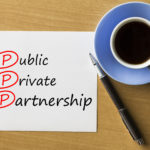The Corporate Sustainability Reporting Directive (CSRD) is a major piece of EU legislation that requires companies to report on a broad range of sustainability-related issues, including corporate governance. Under the European Sustainability Reporting Standards (ESRS), governance-related disclosures are covered under ESRS G1-G4, which outline specific expectations for corporate governance reporting. Boards have a role to play in CSRD, making the regulation and its enforcement a compulsory exercise where top management has “skin in the game”.
Quick Reminder: What is Corporate Governance indeed?
Corporate governance refers to the system of rules, practices, and processes by which a company is directed and controlled. It involves the mechanisms that define how a company is managed, its accountability to stakeholders, and its objectives. The main purpose of corporate governance is to ensure that a company operates in a way that maximizes value for shareholders while balancing the interests of other stakeholders, such as employees, customers, suppliers, and the community. Key aspects of corporate governance include:
- Board of Directors: The governing body responsible for overseeing the company’s management and making key decisions on strategy, risk management, and executive compensation. The board acts as a bridge between shareholders and management.
- Shareholders’ Rights: Corporate governance establishes frameworks for shareholders to vote on critical issues, such as electing board members, approving mergers, or corporate policies.
- Transparency and Accountability: Companies are expected to maintain transparency through regular and accurate financial reporting. This helps build trust among investors and stakeholders.
- Ethics and Compliance: Good governance includes enforcing ethical behavior, ensuring compliance with laws and regulations, and implementing policies that promote fairness and sustainability.
- Risk Management: Corporate governance also focuses on identifying and managing risks that could impact the company’s success or lead to financial losses.
Effective corporate governance helps companies maintain a balance between profit generation and responsibility towards all stakeholders, ensuring long-term sustainability and integrity.
What’s Expected When Implementing ESRS G1-G4?
Here’s a breakdown of what is expected under ESRS G1-G4 for companies requested to comply with CSRD.
ESRS G1: Business Conduct
This standard focuses on ethical business conduct and compliance with laws and regulations. Key areas include:
- Anti-corruption and anti-bribery: Disclosures on the company’s policies, procedures, and controls to prevent corruption and bribery, including incidents and actions taken.
- Whistleblowing mechanisms: Information on mechanisms for reporting misconduct, how they are promoted, and their effectiveness.
- Anti-competitive behavior: Reporting on policies to avoid anti-competitive practices and legal proceedings or fines related to such issues.
- Tax transparency: Disclosures about the company’s approach to tax management, including tax governance, tax risks, and total taxes paid by country.
ESRS G2: Governance Structure
This section deals with how a company is governed, including the roles, responsibilities, and structure of its governing bodies. It typically covers:
- Board composition: Details about the structure of the board of directors, including the diversity, independence, and expertise of board members.
- Roles and responsibilities: Description of roles of the board and its committees, particularly how they manage sustainability-related risks and opportunities.
- Executive compensation: How executive compensation aligns with long-term value creation and sustainability goals.
- Governance policies: The company’s policies on corporate governance, including internal controls, decision-making processes, and accountability structures.
ESRS G3: Internal Control and Risk Management
This standard addresses the company’s approach to internal controls, particularly in managing sustainability risks:
- Risk management systems: Description of systems in place to identify and manage sustainability-related risks, including climate and social risks.
- Internal control frameworks: How the company ensures that its internal controls are functioning effectively, particularly with regard to sustainability data and reporting.
- Audit and compliance: Reporting on the audit processes in place for financial and non-financial information, including sustainability data.
ESRS G4: Stakeholder Engagement
This standard focuses on how companies interact with and manage their relationships with stakeholders, including:
- Transparency and accountability: How the company ensures transparency in its dealings with stakeholders, including mechanisms for grievances or disputes.
- Stakeholder engagement processes: How the company engages with key stakeholders (e.g., shareholders, employees, customers, communities) in decision-making processes.
- Materiality assessment: The process by which the company identifies and prioritizes material sustainability issues based on stakeholder input.
Conclusion
ESRS G1-G4 are encouraging companies to reinforce four aspects of their corporate governance. All of these aspects are altogether critical to build stakeholders in the credibility of companies walking the talk of their commitments on sustainability. Under CSRD, boards of directors are also held accountable on the targets, progress and resources deployed addressing sustainability transformation of companies – making these all four take aspects even more critical:
- Transparency and Integrity: Companies are expected to disclose how they maintain ethical business conduct and transparency in operations, particularly in anti-corruption, tax management, and fair competition.
- Accountability: Governance structures should ensure that responsibilities are clearly defined and that boards are accountable for overseeing sustainability performance.
- Risk Management: Effective internal controls and risk management systems are crucial to ensure that companies are prepared for sustainability risks.
- Engagement: Stakeholder engagement must be structured and meaningful, with transparent processes for addressing stakeholder concerns and feedback.
These standards aim to provide a holistic view of how governance practices align with sustainability objectives and contribute to long-term value creation. Ksapa works and helps companies understanding the gaps and setting up approaches ensuring alignment with these expected practices. Contact us!
Président et Cofondateur. Auteur de différents ouvrages sur les questions de RSE et développement durable. Expert international reconnu, Farid Baddache travaille à l’intégration des questions de droits de l’Homme et de climat comme leviers de résilience et de compétitivité des entreprises. Restez connectés avec Farid Baddache sur Twitter @Fbaddache.






























































































































































